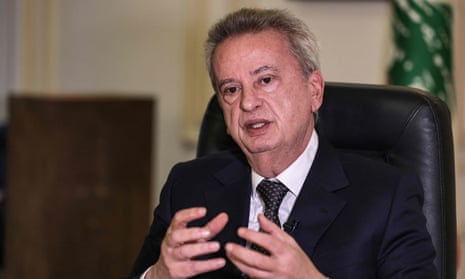The US, Britain and Canada have announced sanctions against the former governor of Lebanon’s central bank, Riad Salameh, accusing him of corrupt actions to enrich himself and his associates.
Salameh, in messages to Reuters, denied the allegations made by the three sanctioning countries and said he would challenge them. Some of his assets had already been frozen in previous investigations, he said.
The US Department of Treasury said in a statement that Salameh’s “corrupt and unlawful actions have contributed to the breakdown of the rule of law in Lebanon”.
It had also imposed sanctions on four others close to him, including relatives, close associates and his primary assistant, it said.
“Salameh abused his position of power, likely in violation of Lebanese law, to enrich himself and his associates by funnelling hundreds of millions of dollars through layered shell companies to invest in European real estate,” the US Treasury said.
Britain and Canada also imposed sanctions on Salameh, who served on the central bank from 1993 until 31 July 2023.
Lawyers for Salameh and his assistant, Marianne Howayek, did not immediately respond to requests for comment.
Once feted as a financial wizard, he left his post last month with his legacy in tatters amid the collapse of Lebanon’s banking sector and corruption charges at home and abroad.
In May, French and German authorities issued warrants for his arrest. Interpol Red Notices declared him wanted by both countries, mentioning charges of money laundering.
The meltdown in Lebanon followed decades of corruption and profligate state spending by the factions that control the government. Many Lebanese hold Salameh and those factions responsible for the collapse that has sunk the currency’s value by 98%.
Salameh has repeatedly denied allegations of financial crimes and has said that he was made a scapegoat for the economic crisis. Along with his brother Raja and Howayek, he was charged in Lebanon with money laundering, embezzlement and illicit enrichment in February.
